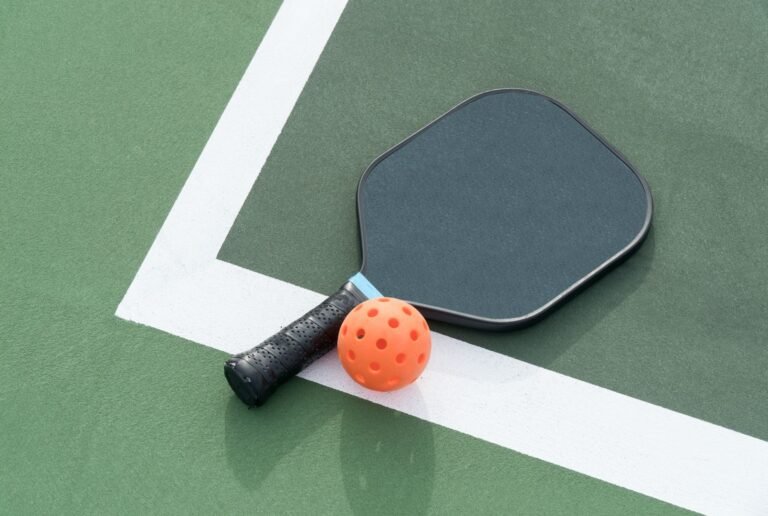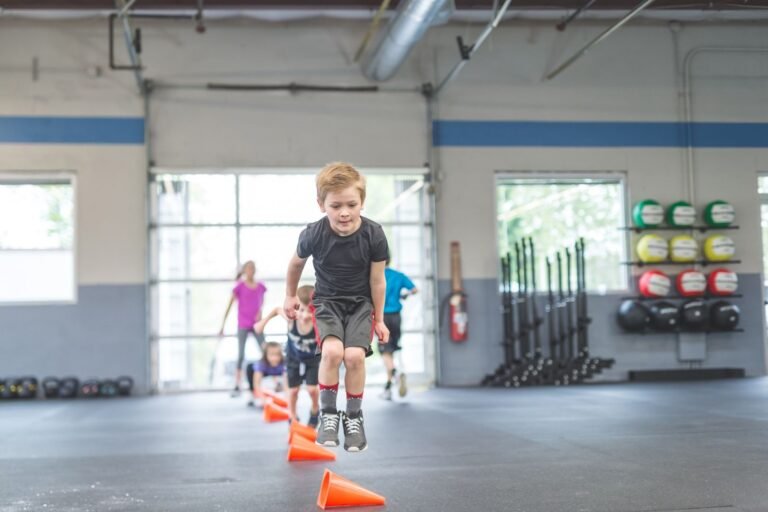Sport and regular physical activity should be a part of every child’s education, given the positive impact they have on physical and psychological health.
Children need to be physically active on a daily basis, and giving them the means to do so at an early age is an important part of their education and a responsibility for parents.
What sport for my child? a question that parents often ask. This article will provide some help and guidance so you can develop an idea about the physical activity best suited to your child.
Why sport?
Children have an incredible burst of energy: they run, they play, they jump, they laugh, they cry, they throw tantrums… How about putting all that energy into a sporting activity? Sport allows children to expend their energy and develop their physical, mental and intellectual capacities, such as self-transcendence, self-control, confidence and teamwork.
Learning a sport, learning to be physically active, is part of a successful education.
Physical activity, and therefore sport, is recognized as the benchmark activity for protecting against chronic disease. Daily physical activity reduces the incidence of cardiovascular disease, diabetes, obesity and certain cancers, as well as osteoporosis and depression.
Participation in sports activities and team sports helps children to develop their autonomy, build their personal identity and gain a better understanding of their abilities. Sport has always been a factor in social integration.
It is the responsibility of parents to help their children practice a sport that they have chosen, if possible, in an environment that is different from that of the family or the school.
Beyond the physical and physiological effects that protect against major illnesses, practicing a sport helps to develop the cognitive skills that are essential in one’s personal and later professional life:
– Exposure to new situations which enhances your child’s analytical skills.
– Awareness of the surroundings and buildup of decision making.
– Grow sense of responsibility either individually or in team sports.
– Determination to reach objectives, for example when participating in competitions.
All these situations with which your child may be confronted through sport, play an important part in the development of a his or her maturity.
What’s the best age to start?
Every sport has its own starting age. While sport from an early age has many benefits for physical and mental health, it shouldn’t become a constraint. Always keep in mind when enrolling your child in sport, it’s important to let him or her make the choice, or at least guide them. Of course, there are always some things to take into account like budget, time, location… Remember, there’s little chance of your child building interest in a sport if they feel it’s been imposed on them.
Furthermore, do not expect your child to excel in a sport, but the goal should be to ensure that they get provided with the foundations of a healthy education.
Children under 7: At this age, the proper activities are designed to awaken and discover the body. Your child is still developing, and coordination, perception of the body and endurance are still building up.
As children are still very young, competitive sports are not recommended.
Children over 7: From the age of 7, individual and team sports can be considered. To perfect their motor skills and develop their curiosity, children can benefit from taking part in a variety of sporting activities. Children can learn to surpass themselves and gain confidence in their abilities.
Children over 10: At this age, competitive sports can be offered to children. Physical activity will enable them to socialize and share with children their own age.
What sport for my child?

1. Basketball: a fast-paced, strategic, and team-oriented sport
Basketball helps kids develop their social and cognitive abilities in addition to their athletic attributes. It helps with fostering strategy, fast decision-making, and teamwork. It also enhances cognitive abilities like spatial awareness and problem-solving. Your child gets knowledge about leadership, teamwork, and efficient communication. Social skills like empathy and respect for others are developed on the court and are vital for players’ general development and emotional intelligence.
To improve your child’s health and physical fitness try Basketball. It requires from your child a lot of movement like running, jumping, and fast direction changes. This contributes to the development of cardiovascular endurance, strength, and coordination. Playing basketball regularly helps building in your child a lifetime love for the sport. These health advantages, which promote bone and muscular growth and drive for a healthy lifestyle, are mainly important during the formative years.

2. Soccer: a team sport for all
Soccer is the favorite sport of primary school children. Easy and economical, it’s the most popular sport for most age categories.
It strengthens ball skills, endurance and friendships. With no need for matches, just getting the ball out with friends, soccer can be played anywhere, outdoor or indoor, at any time.
It requires no special equipment (apart from shoes and a ball). Children can also practice dribbling on their own after school, or with a few friends after school.

3. Baseball: a fun game of skill, teamwork and strategy
Running, pitching, and batting is what your child will experience playing baseball, it’s a sport that will improve their physical fitness, enhance their cardiovascular health and motor function. It will also teach your child to plan ahead and be patient. Strategy is a great skill that your child will learn playing baseball.
Children playing baseball obtain an understanding of the value of teamwork by achieving shared objectives and acquiring a sense of unity. Baseball also promotes communication and teamwork abilities. It instills self-control and a strong work ethic because consistent practice is essential to progress.
Baseball also teaches important life lessons like sportsmanship and resilience. kids learn how to accept victories and defeats with grace and learn the importance of tenacity and fair play. These attributes support positive outlooks and personal development in a variety of spheres of life.

4. Yoga: an activity for movement and relaxation
Increasingly popular, yoga for children helps develop body awareness and motor skills. With a focus on breathing, this sport, which originated in India, can be taught from the age of 2.
More and more yoga shops are offering this sport for children, but you can also start at home using yoga books or Youtube videos.
The postures taught are age-appropriate and enable children to channel their emotions, build flexibility, release tension, develop motor skills and improve concentration. Incorporating yoga into your routine is excellent for your health!
You can also practice Yoga with your child, it’s an opportunity to do good for body and mind while sharing a moment together.

5. Rollerblading: an outdoor or indoor activity
Evening strolls are a real treat. Rather than sitting in front of the TV or play video games, what’s better than go for roller-skating as a family?
It’s a fun and physical activity that brings everyone together. If the weather allows, go out and enjoy the sunshine with your child, a skating park will do the trick. Don’t forget your protective gear!

6. Swimming: an early-learning and motor activity
Swimming is one of the first sports to be taught to children, and sometimes can be part of some school sports programs. It’s ideal to introduce them as early as possible, since water is an environment they’re particularly familiar with.
From the age of 6 months only, water-based activities are used to develop children’s awareness and motor skills in the water.
Spending time together in such an environment creates a bond of mutual trust.

7. Hiking: an outdoor activity
For fans of nature, space and the great outdoors, hiking is the most family-friendly sporting activity. Introduced as soon as they are able to walk for a long distance, this activity is appreciated by children looking for a challenge.
This activity is easy to plan for and requires less preparation. Children get to bond with you and learn how to find their way around a geographical area.
For younger children, we recommend turning hiking into a treasure hunt. The approach will be more fun for them, and the idea of setting off in search of a reward will motivate them even more. Make sure you have candy, chocolate or any other treats they might enjoy! You may be amazed by their thinking skills, stimulated by concentration and the desire to be rewarded.

8. Climbing: an activity to challenge your child
Rock climbing has been an emerging sport in recent years. For children as young as 3, it has developed rapidly.
Today, climbing supports are adapted for all levels and can be very playful. They also provide a reassuring and safe space to control children’s apprehension.
Participating in climbing with your child encourages them to surpass themselves, coordinate their movements and learn balance. You’ll be able to give them self-confidence and trust.

9. Wrestling for kids, a cocktail of energy and confidence!
Wrestling (or any other combat sport) is an ideal sport for children who find it difficult to channel their emotions and energy. It’s also ideal for less obedient children who don’t respect the rules.
Find a good school that emphasizes teaching them discipline and respect. And you will be amazed by how much a sport can affect your child’s personality and behavior.





